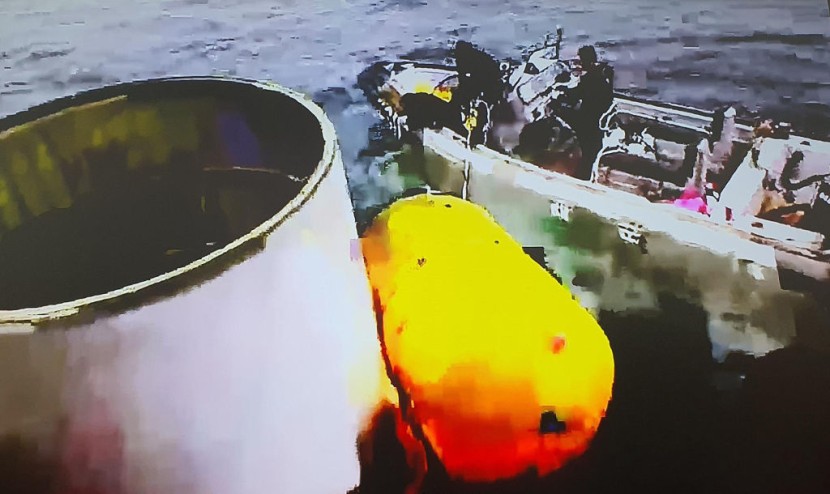
The South Korean military announced on Wednesday that it had recovered the remains of a North Korean spy satellite that crashed into the ocean in May after a bungled launch and determined that the satellite had no military value as a reconnaissance satellite.
A month ago, the military also recovered pieces of the failed launch rocket; the booster and payload had plummeted into the ocean shortly after launch.
South Korea Retrieves Crashed North Korean Spy Satellite
The South's military stated that it had concluded salvage operations, which began promptly after the detritus landed off the west coast of South Korea on May 31. Aircraft, the navy, and deep-sea explorers participated in the operation.
According to NBC News, it is the first time South Korea has captured a satellite launched by the North. Lee Choon-Geun, an expert at the Science and Technology Policy Institute of South Korea, said the initial evaluation revealed that the equipment's reconnaissance capability lacked resolution and target tracking.
South Korea's military traced the spacecraft's launch and identified a large, cylinder-shaped piece of debris in the water hours after the launch, but the object descended to the ocean floor. It was recovered after two weeks.
Per Strait Times, the salvage operation will likely be the world's most significant involving a North Korean rocket. The recovered fragments, according to experts, could still provide information about the secretive state's rocket program and provide hints about potential sanctions violations involving the procurement of the rocket's components.
According to weapons specialists, the first stage of the rocket North Korea dubbed "Chollima-1," a reference to a mythical winged horse, successfully burned liquid-fuel engines.
The regime of North Korean leader Kim Jong Un has also installed these motors on its most potent intercontinental ballistic missiles designed to deliver nuclear warheads to the continental United States. North Korea stated that the rocket faltered because the second-stage engine did not ignite. The third stage transported the spy satellite, and its recovery presumably provided intelligence about the camera's resolution.
Read Also: Cocaine Discovered at White House 2 Days After Hunter Biden Visit; Incident Prompts Evacuation
North Korea Ballistic Missile Tests
In June, South Korea released images of a portion of the North Korean rocket measuring 14.5 meters. According to weapons experts, the two fragments recovered in waters approximately 70 meters deep were from the second stage and presumably contained the failed engine.
David Schmerler, a senior research associate at the James Martin Center for Nonproliferation Studies, stated that if North Korea can launch and orbit an imaging satellite, it will likely use the resulting images to refine its target list.
Tens of thousands of US military personnel are stationed in South Korea and Japan, where North Korea has stated it intends to monitor with surveillance satellites. Resolutions of the United Nations Security Council prohibit North Korea from conducting ballistic missile tests, but Pyongyang has long asserted its right to a satellite-launching space program.
The United States and its allies have warned that North Korea's space program could be used to develop ballistic missiles. Under Kim Jong Un, North Korea has increased the domestic technology and components used in its most recent missile arsenal.
Certain materials and components, which the country is prohibited from acquiring due to international sanctions imposed as punishment for its pursuance of nuclear weapons and ballistic missiles capable of delivering warheads, are still required from the outside world.
Related Article : Yoon Suk Yeol: South Korea Unification Ministry To Be Harder on North








